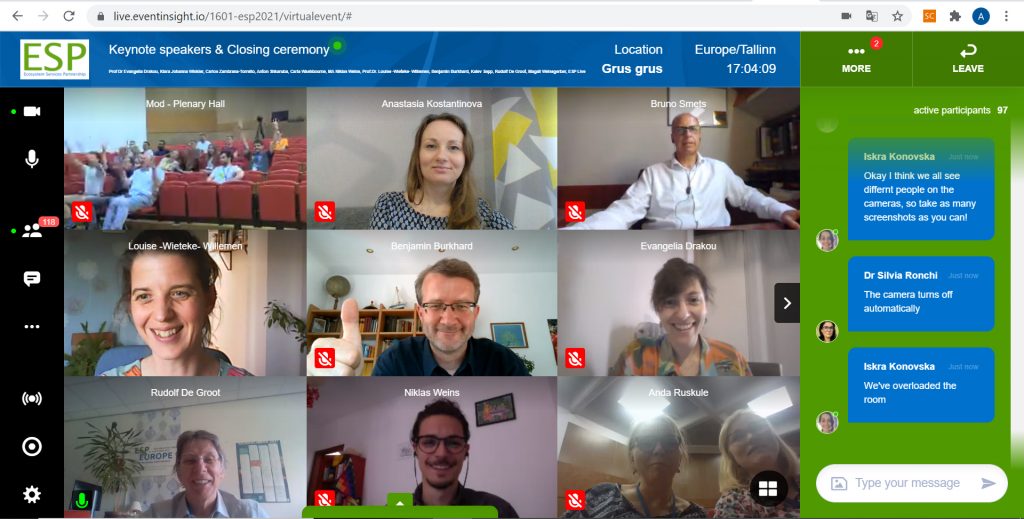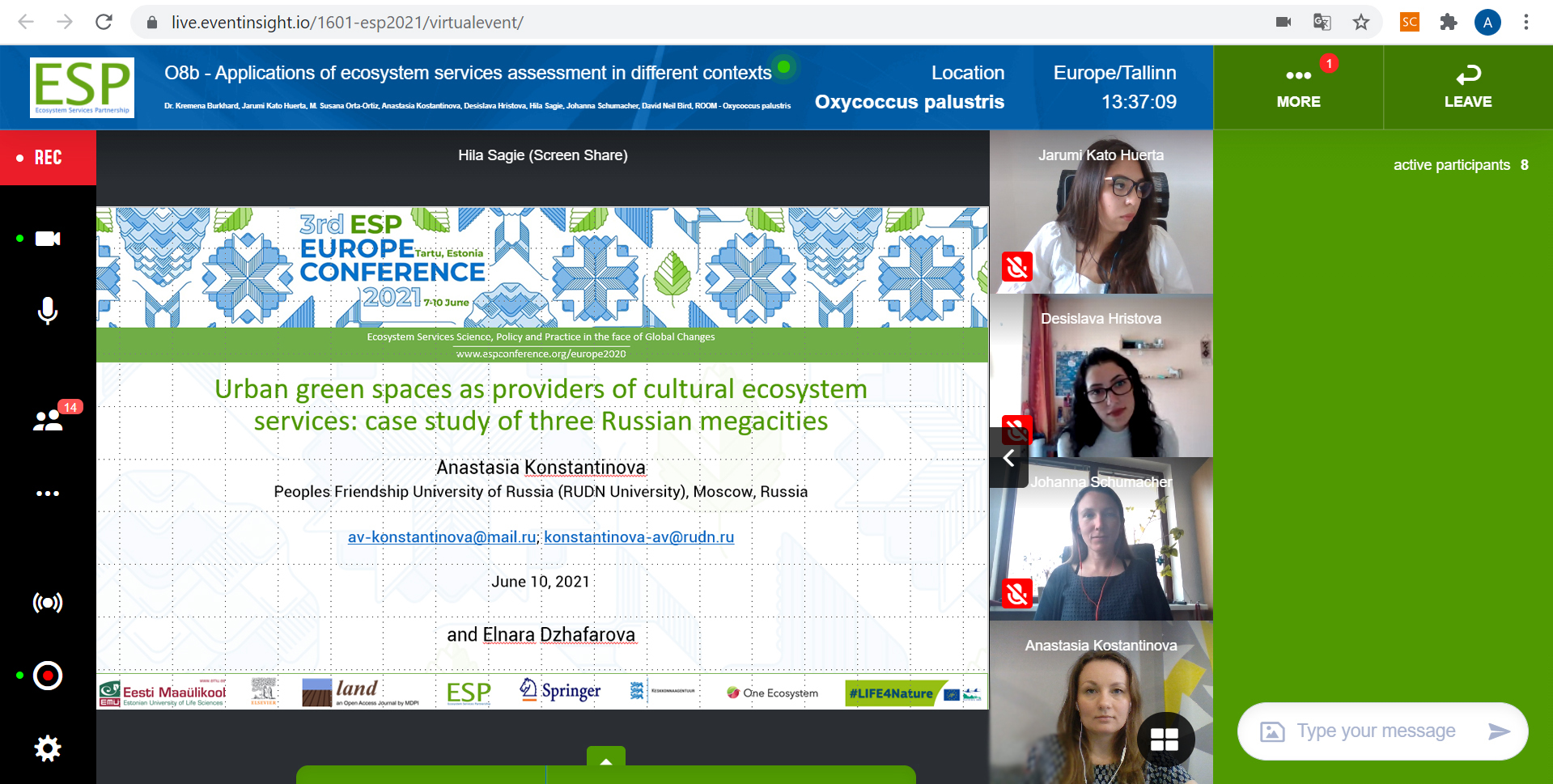After the 1st ESP Europe in Antwerp (2016) and the 2nd in San Sebastian (2018), the upcoming Ecosystem Services Partnership Conference took place in Tartu (Estonia) from 7-10 June 2021. The conference turned out to be a special event in a hybrid format – both online and offline participation – which gathered near 460 participants from 51 countries from all parts of the world.
The Ecosystem Services Partnership aims to enhance communication, coordination and cooperation, and to build a strong network of individuals and organizations by connecting over 3000 ecosystem services scientists, policy makers and practitioners who work together in more than 40 Working Groups and a growing number of National Networks on all continents. Among hundreds of participants Anastasia Konstantinova and Viktor Matasov are two researchers who represented Smart Urban Nature lab in the event.
Anastasia Konstantinova took part in the session “Applications of ecosystem services in different contexts” and presented her research Urban green spaces as providers of cultural ecosystem services: case study of three Russian megacities. The study presents the results of the research of cultural ecosystem services provided by urban green areas situated in three Russian megacities: Moscow, Saint Petersburg and Rostov-on-Don. The social survey, conducted in autumn 2020 in nine different types of urban green spaces (UGS): public and historical parks, botanical gardens, urban forest, revealed the main characteristics of the research areas such as accessibility of the park, the frequency and purpose of park visits, the preferences in recreation activities and ecosystem services and disservices provided, as well as the willingness of visitors to participate in improving the territory. The results showed the most popular ecosystem services and their correlation with the UGS infrastructure and also highlighted the importance of additional UGS infrastructure that meets current social needs and indicated the lack of strategic design and planning thinking.

Viktor Matasov shared with his research Changes of the recreation patterns in urban parks associated with COVID-19 in the session “Ecosystem services indicators in the era of big, coarse data”. He studied cultural ecosystem services (CES) which people obtain from ecosystems through cognitive, recreation, and aesthetic experiences so his research was focused on the spatio-temporal changes in recreation influenced by pandemic situations. The results showed an increase in total number of visitors in 2020 compared to 2019 in general but overall in Moscow there were no significant changes in the young generation’s demand for CES, provided by parks during the pandemic.
Current developments and calls for action show that ESP is needed more than ever as an independent, global community of concerned and engaged activists, bringing together scientists, practitioners and policy makers to discuss how the ES-concept and respective applications can continue to contribute to provide solutions to achieve a more sustainable society and address the many global changes we are facing today. Not only the pandemic, which has been linked to the on-going loss of natural habitats, but also climate and land use changes and other causes of land degradation are leading to a vicious circle of even more emissions and social disruptions. How the ES-concept can help to address these challenges will be discussed during the following days of our ESP Europe Conference in six interesting keynote speeches, ranging from EU Policies and EU programs to the role of environmental economics and the business community.

